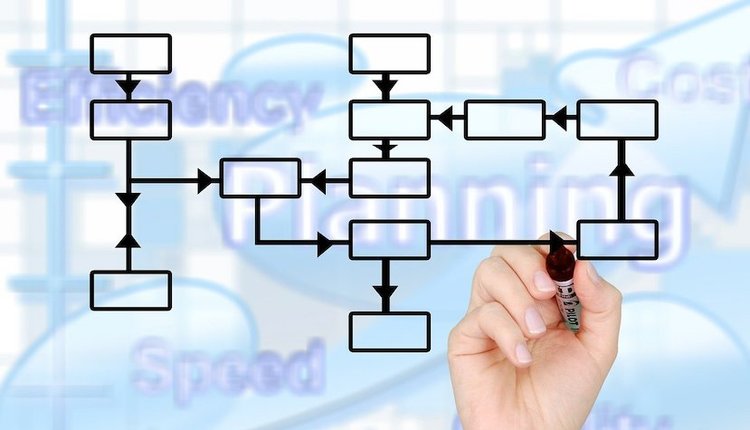
Image by: baramee2554, ©2017 Getty Images
A wise man once said, "The greatest enemy of knowledge is not ignorance; it is the illusion of knowledge." I routinely lead seminars, give keynote speeches, and even oversee project management within the area of critical information management, and routinely, the initial reaction from the stakeholders present is, “Who cares? I already know this.” Thank goodness, the mood eventually changes, and people begin to understand that there is indeed a universe of things of which they do not know about.
In fact, a conversation involving people with a clear understanding of the issue at hand quickly evolves to making important discoveries. Usually, knowledgeable people—even if they do not know specific details—can make educated guesses as well, which also lead to these discoveries. Furthermore, there are people who might assume they are ignorant on these matters, but their humility and willingness to learn helps to open new lines of reasoning.
The greatest difficulty comes with those who assume they know—or worst, those who think they are supposed to know—due to their hierarchical status. Before the “click” day, everything we say is taken lightly or even lightly contested. What is the “click” day? It is the day when these people realize that what we say may, indeed, have valid knowledge behind it and that knowledge may bring benefits to the organization.
What factors may be linked to this illusion of knowledge?
“Obviously, I Have to Know.”
Many people, because they are an information technology (IT) manager, chief information officer (CIO), advisor to the chief executive officer (CEO), and what not, assume that their position in the organization requires them to know every bit and byte about the solutions. Nothing is further from the truth. The scope of knowledge nowadays is so wide that no one can know it all, even leaders within a specific area. What is required of managers is to recognize their lack of knowledge and call in experts in the field to enlighten them.“If I Don't Know, I Can Quickly Find Out.”
Well, this is easier said than done. Yes, one can find the answer but not so quickly. This is because one does not know exactly what to look for, and there are many solutions in the market being called the same thing. For example, I have seen PDFs stored in a Windows folder being called a “Document Management Solution.” Last, but not least, it is difficult to compare tools even if you've found ones that are worth looking at. Tools may have different functionalities, but in the hands of competent people, they may turn out to be a part of very efficient solutions. It is the solution that matters, not just the tool.“I’ve Read About It on Facebook.”
Social media may be nice for many people. I tend to use the professional ones but certainly not Facebook. Mind you, I am appalled because many of the people I talk to make up their minds due to some post on Facebook. I am not saying that these posts are incorrect; I'm just pointing out that they are not correct simply because they were posted on Facebook or any social media network, for that matter.To get to the truth of any matter, we need to use the GEOP methodology. We need to collect information from different sources, evaluate it, and organize it. The idea is not to transform ourselves into experts but to ask intelligent questions about this unknown subject. If we ask trivial questions, the consultant or any other expert advising us can, pretty much, say anything.
“Well, That Is an Opinion Among So Many Options”
If nothing else works, this is the last argument to prove an unknown point. Assuming you are talking to an expert consultant, he/she will have enough experience to recommend potential solutions for the issues you may have related to information management. These solutions can and will be referred by previous projects at other organizations. So, we are not exactly talking about opinions but statements anchored in successful experiences.Concerning the various options available, they may exist, but typically, there may not be as many as one might like to think. If the organization is a multinational company, the user interface has to cope with a multitude of languages, not just one or two. If the organization has a huge number of internal videos, the solution must take into consideration the classification from within these videos and so on. To put it simply, the specific requirements of your organization will limit the number of options, no matter the marketing slogans used by vendors.
More and more, it is the attitude that matters. It is not shameful for a CIO or IT manager to say, “I don't know about this particular area of knowledge.” What is shameful is precisely the opposite—those that don't have this knowledge but say they do. Sometimes, people ask me a question that I don't know the answer to. My response is always the same: “I don't know, but I have the telephone number of someone who does. I will call you back tomorrow.”
Joao Penha-Lopes specializes in document management since 1998. He holds two postgraduate degrees in document management from the University Lusofona (Lisbon) and a PhD from Universidad de Alcala de Henares (Madrid) in 2013, with a thesis studying the economic benefits of electronic document management (EDM). He is an ARMA collaborator for publications and professionally acts as an advisor on critical information flows mostly for private corporations. Follow him on Twitter @JoaoPL1000.
















